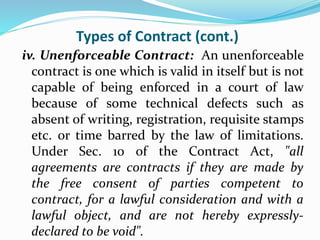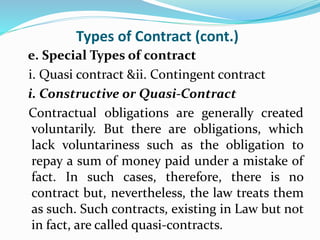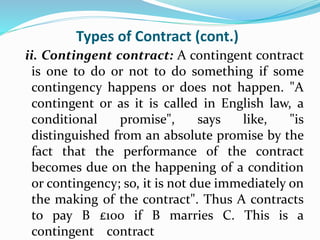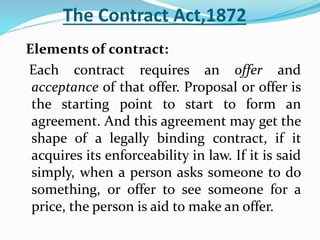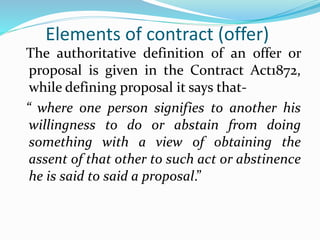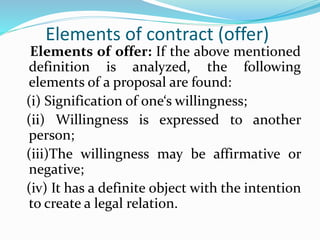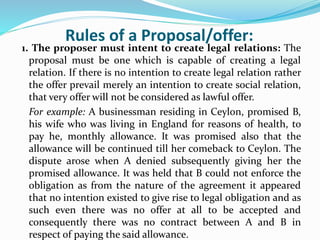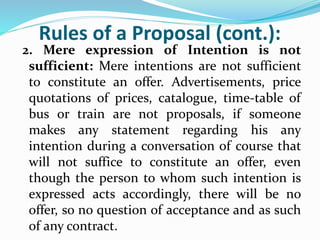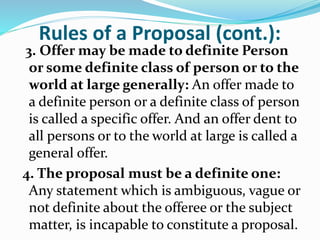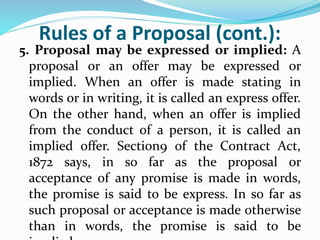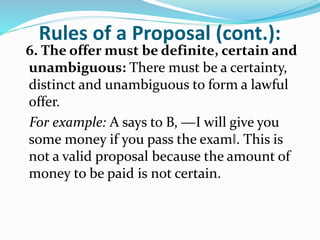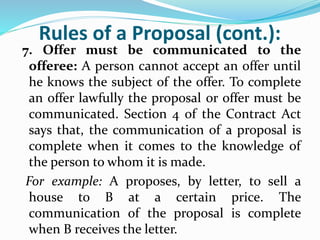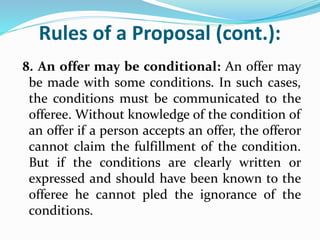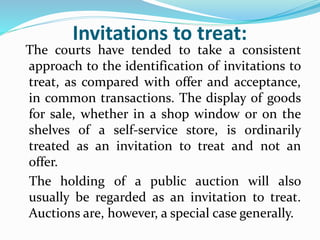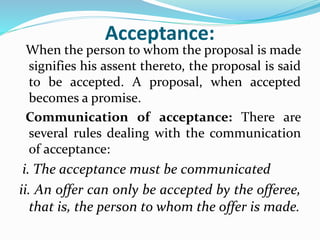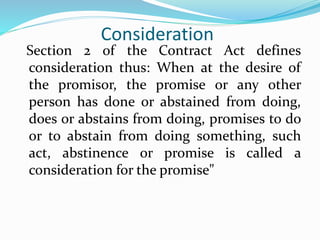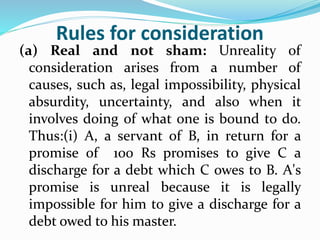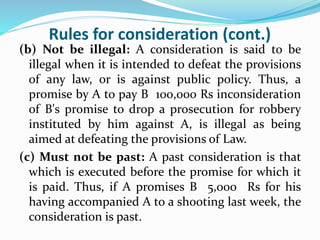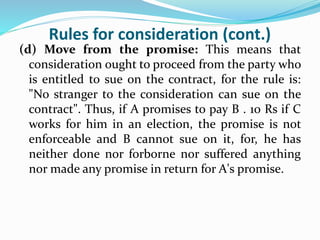The Contract Act of 1872 governs contract law in Pakistan, establishing the essentials for contracts, including formation, types, and enforceability. It classifies contracts based on creation, performance, parties involved, and validity, outlining the principles of offer, acceptance, and consideration. Key distinctions such as valid, void, and voidable contracts help delineate the legal implications of various agreements.

![The Contract Act, 1872
The Act: Contract act 1872 governs the law of
contract in Pakistan. The Act came into force in
the then Sub-continent on 1 September of 1872,
and was adopted in Pakistan without change. It
contains the common rules relating to
contracts and differentiates them.
Contract: An agreement enforceable by law is a
contract. [Section 2 (h).]
to be a lawful contract, an agreement is
necessary and that agreement must be lawful
that is enforceable by law. A contract is thus a
combination of two ideas— agreement and
obligation.](https://image.slidesharecdn.com/pp-170815072205/85/Contract-and-types-of-Contract-2-320.jpg)
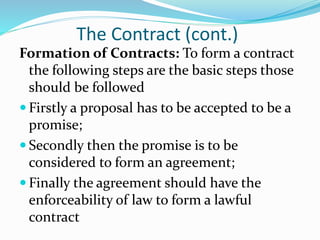
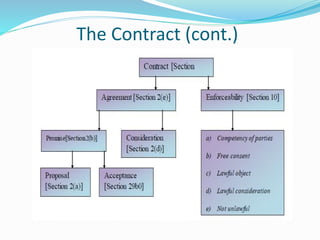
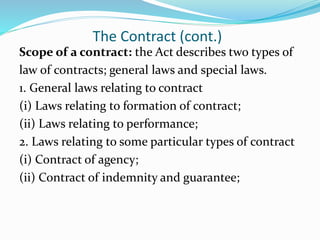
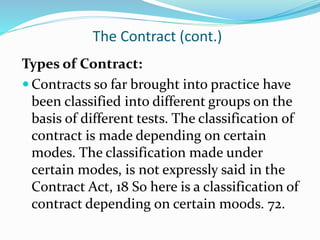
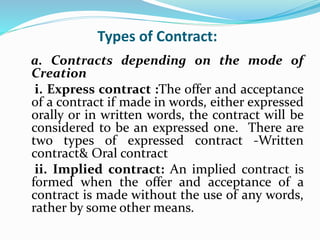
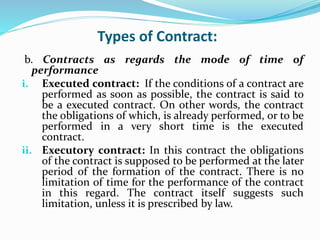
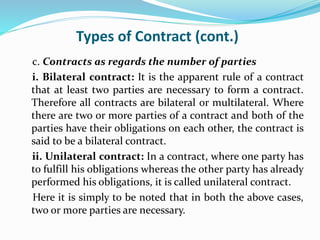
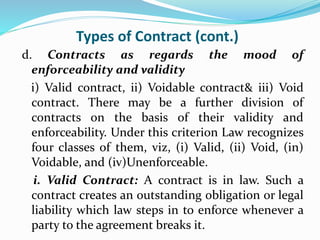
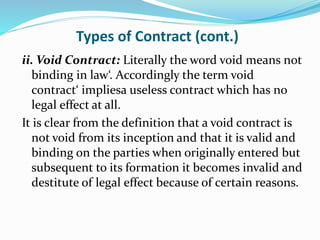
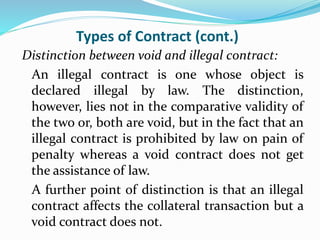
![Types of Contract (cont.)
iii. Voidable contract: An agreement which is
enforced by law at the opinion of one or more
of the parties thereto, but not at the opinion of
the others, is a voidable contract [Section 2(i)]
Thus a voidable contract is one which is
enforced by the law at the opinion of one of the
parties. Usually a contract becomes voidable
when the consent of one of the parties to the
contract is obtained by coercion, undue
influence, is representation or fraud.](https://image.slidesharecdn.com/pp-170815072205/85/Contract-and-types-of-Contract-13-320.jpg)
